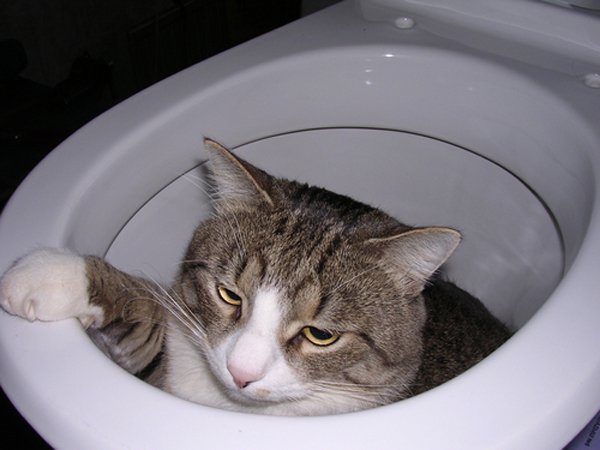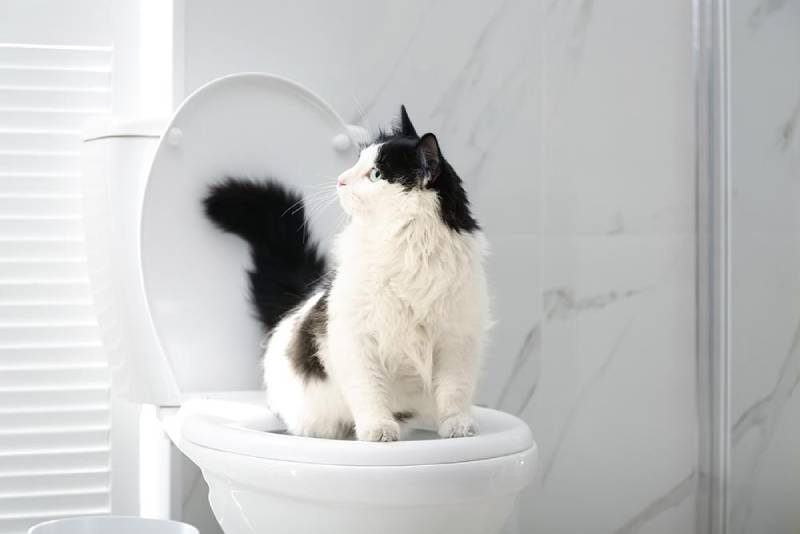Prevent Plumbing Problems: Don't Flush Cat Poop Down Your Toilet - Professional Guidance
Prevent Plumbing Problems: Don't Flush Cat Poop Down Your Toilet - Professional Guidance
Blog Article
Are you currently interested in facts concerning How to Dispose of Cat Poop and Litter Without Plastic Bags?

Introduction
As pet cat owners, it's important to bear in mind how we take care of our feline buddies' waste. While it may seem practical to purge cat poop down the commode, this technique can have damaging consequences for both the atmosphere and human health and wellness.
Alternatives to Flushing
Thankfully, there are much safer and much more accountable means to get rid of pet cat poop. Think about the complying with choices:
1. Scoop and Dispose in Trash
One of the most usual method of getting rid of feline poop is to scoop it into a naturally degradable bag and throw it in the trash. Make certain to make use of a dedicated litter scoop and take care of the waste without delay.
2. Use Biodegradable Litter
Opt for biodegradable cat clutter made from materials such as corn or wheat. These trashes are environmentally friendly and can be safely disposed of in the garbage.
3. Hide in the Yard
If you have a backyard, think about burying feline waste in an assigned area far from vegetable gardens and water resources. Make certain to dig deep enough to avoid contamination of groundwater.
4. Set Up a Pet Waste Disposal System
Purchase a family pet garbage disposal system especially designed for cat waste. These systems use enzymes to break down the waste, reducing odor and ecological influence.
Wellness Risks
Along with ecological worries, flushing cat waste can additionally present health and wellness risks to humans. Pet cat feces may contain Toxoplasma gondii, a bloodsucker that can trigger toxoplasmosis-- a potentially extreme disease, particularly for expectant women and people with weakened body immune systems.
Ecological Impact
Flushing feline poop presents harmful pathogens and bloodsuckers right into the supply of water, posing a substantial danger to marine communities. These pollutants can adversely influence aquatic life and compromise water top quality.
Verdict
Responsible pet dog ownership extends past supplying food and sanctuary-- it likewise entails proper waste management. By avoiding purging pet cat poop down the bathroom and opting for different disposal methods, we can minimize our ecological impact and protect human health and wellness.
Why You Should Never Flush Cat Poop Down the Toilet
A rose by any other name might smell as sweet, but not all poop is created equal. Toilets, and our sewage systems, are designed for human excrement, not animal waste. It might seem like it couldn’t hurt to toss cat feces into the loo, but it’s not a good idea to flush cat poop in the toilet.
First and foremost, assuming your cat uses a litter box, any waste is going to have litter on it. And even the smallest amount of litter can wreak havoc on plumbing.
Over time, small amounts build up, filling up your septic system. Most litter sold today is clumping; it is made from a type of clay that hardens when it gets wet. Ever tried to scrape old clumps from the bottom of a litter box? You know just how cement-hard it can get!
Now imagine just a small clump of that stuck in your pipes. A simple de-clogger like Drano isn’t going to cut it. And that means it’s going to cost you big time to fix it.
Parasitic Contamination
Believe it or not, your healthy kitty may be harboring a nasty parasite. Only cats excrete Toxoplasma in their feces. Yet it rarely causes serious health issues in the cats that are infected. Most people will be fine too if infected. Only pregnant women and people with compromised immune systems are at risk. (If you’ve ever heard how women who are expecting are excused from litter cleaning duty, Toxoplasma is why.)
But other animals may have a problem if infected with the parasite. And human water treatment systems aren’t designed to handle it. As a result, the systems don’t remove the parasite before discharging wastewater into local waterways. Fish, shellfish, and other marine life — otters in particular — are susceptible to toxoplasma. If exposed, most will end up with brain damage and many will die.
Depending on the species of fish, they may end up on someone’s fish hook and, ultimately on someone’s dinner plate. If that someone has a chronic illness, they’re at risk.
Skip the Toilet Training
We know there are folks out there who like to toilet train their cats. And we give them props, it takes a lot of work. But thanks to the toxoplasma, it’s not a good idea.

I ran across that blog post on Can You Flush Cat Poo or Litter Down the Toilet? while doing research the internet. Appreciated our blog posting? Please share it. Let somebody else check it out. Thank you so much for going through it.
Call Today Report this page